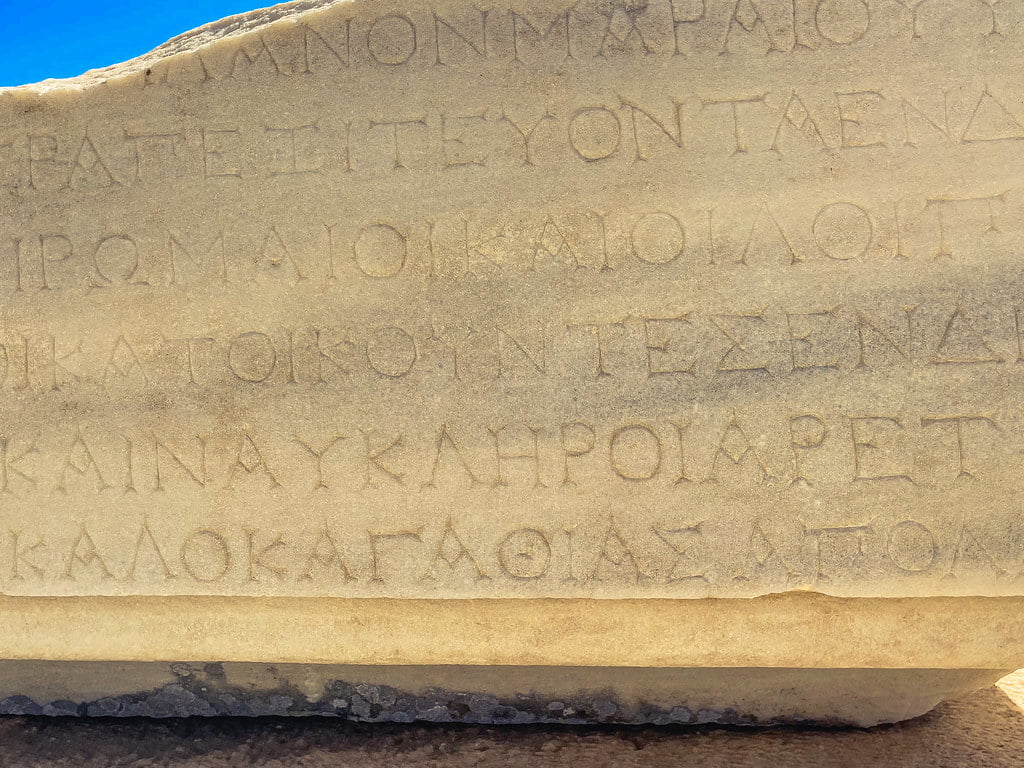While other countries may deck the halls with boughs of holly, Greece weaves a story that is uniquely its own. From singing carols to baking sweets that melt in your mouth, the Greek way of celebrating Christmas is full of heartfelt moments that bring families and communities together.
The Season of Light
In Greece, Christmas isn’t just a one-day event, it’s a season that begins on December 6th, the Feast of Saint Nicholas, and extends to January 6th, the Feast of Epiphany. For these weeks, homes, towns, and cities come alive with twinkling lights and festive decorations. While Christmas trees have become popular, Greeks also honor their maritime heritage with karavakia, illuminated boats symbolizing safe journeys and good fortune.
The Sweet Smell of Christmas
If Christmas had a smell, in Greece, it would be honey, cinnamon, and cloves. The festive season is incomplete without melomakarona (honey-soaked cookies) and kourabiedes (buttery almond cookies dusted with powdered sugar). These treats aren’t just delicious, they’re a symbol of abundance and sharing. Baking them is often a family affair, with recipes handed down from generation to generation.
Caroling the Greek Way
On Christmas Eve, New Year’s Eve, and the Eve of Epiphany, children take to the streets to sing kalanda, traditional Greek carols. Accompanied by triangles and other instruments, they visit homes and shops, bringing cheer and collecting small treats or coins in return. These songs, often centuries old, blend blessings for the household with a joyous sense of community.
Christopsomo: Bread with a Blessing
Bread holds a special place in Greek Christmas culture, and Christopsomo, literally “Christ’s bread”—is a centerpiece of the holiday table. Made with care and decorated with crosses or other symbolic designs, this spiced, nutty loaf is both a culinary delight and a sacred tradition. Breaking and sharing Christopsomo is a meaningful moment, reflecting the importance of family and faith.
Faith and Festivities
Christmas in Greece is deeply rooted in the Orthodox Christian faith. Midnight Mass on Christmas Eve is a cherished tradition, filling churches with candlelight, incense, and the hauntingly beautiful hymns of Byzantine chant. For many Greeks, this spiritual celebration is the true heart of Christmas, a moment to reflect on the holiday’s deeper meaning.
New Year’s and Saint Basil
Greek Christmas culture extends beyond December 25th, blending seamlessly into New Year’s celebrations. Saint Basil, Greece’s version of Santa Claus, is celebrated on January 1st. Families gather to cut the Vasilopita, a sweet bread with a hidden coin inside. Whoever finds the coin is said to have luck and blessings for the year ahead.
The Blessing of the Waters
The season culminates with Epiphany on January 6th, marked by the Blessing of the Waters ceremony. In coastal towns and villages, priests throw a cross into the sea, and brave swimmers dive into the chilly waters to retrieve it. This ritual symbolizes the purification of the world through Christ’s baptism and is followed by feasting and festivities.
The Spirit of Philoxenia
Perhaps the most remarkable aspect of Greek Christmas culture is the spirit of philoxenia, or hospitality. Whether it’s a neighbor offering you a plate of homemade cookies, or an entire village coming together to celebrate, the warmth of Greek Christmas goes beyond traditions. It’s about opening hearts and homes, sharing what you have, and creating memories with loved ones.
A Christmas Like No Other
Christmas in Greece is a celebration that wraps you in a sense of belonging, whether you’re a local or a visitor. It’s the glow of a karavaki, the laughter of children singing kalanda, the taste of honey-drenched treats, and the quiet reverence of a candlelit church. It’s a time when ancient traditions blend with modern festivities, reminding everyone of the beauty of togetherness.









